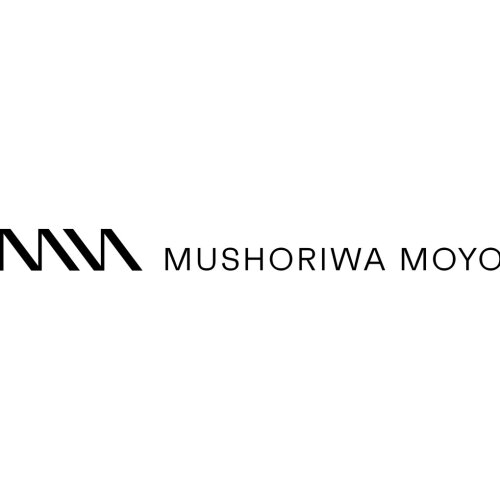Best Bad Faith Insurance Lawyers in Harare
Share your needs with us, get contacted by law firms.
Free. Takes 2 min.
List of the best lawyers in Harare, Zimbabwe
About Bad Faith Insurance Law in Harare, Zimbabwe
In Harare, Zimbabwe, Bad Faith Insurance pertains to situations where insurance companies act in dishonesty or fail to honor their contractual obligations toward policyholders. This could involve unreasonably delaying claim payments, denying valid claims without cause, or failing to adequately investigate claims. As policyholders rely on the assurance provided by insurance companies for various aspects of their lives-such as health, property, and business operations-understanding Bad Faith Insurance is crucial to ensuring that these companies fulfill their duties in good faith.
Why You May Need a Lawyer
Individuals may find themselves in need of a lawyer specializing in Bad Faith Insurance for several reasons. Common situations include:
- The insurance company refuses to pay out a legitimate claim.
- Unreasonable delay in processing claims and providing payouts.
- Settlement offers that are significantly lower than the value of the claim.
- Cancellation of an insurance policy without a valid reason.
- Misinformation provided about coverage or claims processes.
In these situations, a lawyer can provide legal advice on how to proceed, ensuring that policyholders receive fair treatment and the compensation they are entitled to under their insurance policy.
Local Laws Overview
The legal framework surrounding insurance in Zimbabwe is embedded within the Insurance Act, which governs the operation and regulation of insurance companies. Specific aspects relevant to Bad Faith Insurance include:
- Insurance companies are required to act in good faith, meaning they must not unjustly deny claims or delay payments.
- Consumers have the right to appeal denied claims through the regulatory body, the Insurance and Pensions Commission (IPEC).
- Insurance contracts must be clear, and companies are obligated to honor the terms and conditions specified.
- Policyholders can seek legal recourse if an insurer violates these obligations, potentially leading to court proceedings to settle disputes.
Frequently Asked Questions
What qualifies as Bad Faith Insurance in Zimbabwe?
Bad Faith Insurance involves unethical or fraudulent practices by an insurer, such as unjustified denial of claims, misrepresentation of contract terms, or processing delays without reasonable cause.
How do I know if my insurance claim was wrongfully denied?
If your claim was denied without a valid reason or without sufficient investigation, or if you suspect misinterpretation of your policy, it may have been wrongfully denied.
How can a lawyer help with a Bad Faith Insurance claim?
A lawyer can evaluate your claim, help you gather evidence, negotiate with the insurance company, and, if necessary, represent you in court to seek compensation.
Is there a time limit for filing a Bad Faith Insurance claim in Zimbabwe?
While specific time limits can vary, it is crucial to act promptly. It is best to consult with a legal expert to understand the relevant limitations based on individual circumstances.
Can I negotiate with the insurance company directly?
Yes, you can attempt direct negotiations. However, having a lawyer can often strengthen your position, as they bring expertise and leverage to these discussions.
What evidence is needed to support a Bad Faith Insurance claim?
Key evidence includes your insurance contract, all correspondence with the insurer, records of claim submissions, and any justifications for the claim’s denial.
Are there alternative dispute resolution methods available?
Yes, mediation and arbitration can serve as alternative dispute resolution mechanisms if both parties agree to pursue these routes instead of proceeding to court.
Can I file a complaint with IPEC?
Yes, as the regulatory authority, IPEC can handle complaints against insurance companies. They work to ensure adherence to policies and protect consumer rights.
What costs are involved in pursuing a Bad Faith claim?
Costs can include legal fees, court costs, and, potentially, fees for obtaining expert opinions. Some lawyers may work on a contingency basis, meaning they only get paid if you win the case.
What are my chances of winning a Bad Faith Insurance lawsuit?
The outcome will depend on the specific facts and evidence of your case. An experienced lawyer can provide an assessment based on the details of your situation.
Additional Resources
For further assistance, consider reaching out to the following resources:
- Insurance and Pensions Commission (IPEC): Provides oversight and addresses grievances against insurance firms.
- Law Society of Zimbabwe: Can refer you to qualified lawyers specializing in insurance law.
- Consumer Council of Zimbabwe: Offers a platform for consumer education and advocacy regarding insurance issues.
Next Steps
If you believe you have been the victim of Bad Faith Insurance, consider taking the following steps:
- Review your insurance policy and gather all relevant documentation.
- Contact the insurance company to attempt resolution through internal channels.
- If the issue persists, seek counsel from a lawyer with experience in insurance law to evaluate your case and consider filing a formal complaint with IPEC.
- Explore filing a lawsuit if negotiations do not yield satisfactory results, with legal support guiding you through the process.
Timely action and professional legal advice can significantly influence the outcome of a Bad Faith Insurance dispute, ensuring your rights are upheld.
Lawzana helps you find the best lawyers and law firms in Harare through a curated and pre-screened list of qualified legal professionals. Our platform offers rankings and detailed profiles of attorneys and law firms, allowing you to compare based on practice areas, including Bad Faith Insurance, experience, and client feedback.
Each profile includes a description of the firm's areas of practice, client reviews, team members and partners, year of establishment, spoken languages, office locations, contact information, social media presence, and any published articles or resources. Most firms on our platform speak English and are experienced in both local and international legal matters.
Get a quote from top-rated law firms in Harare, Zimbabwe — quickly, securely, and without unnecessary hassle.
Disclaimer:
The information provided on this page is for general informational purposes only and does not constitute legal advice. While we strive to ensure the accuracy and relevance of the content, legal information may change over time, and interpretations of the law can vary. You should always consult with a qualified legal professional for advice specific to your situation.
We disclaim all liability for actions taken or not taken based on the content of this page. If you believe any information is incorrect or outdated, please contact us, and we will review and update it where appropriate.











